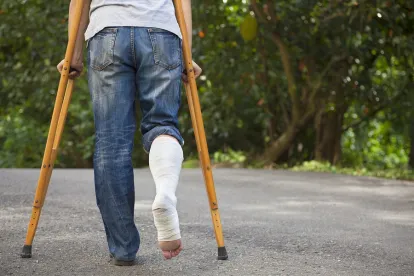New Jersey workers’ compensation benefits are governed under N.J.S.A. 34:15 et seq. There are three benefits you are entitled to when you get hurt at work in New Jersey: payment of medical bills, payment of temporary disability benefits or wage replacement and payment of an award of permanent disability.
This is the first in a series of three articles. With regard to the payment of medical bills, the statute requires the employer to provide medical treatment that is reasonable, necessary and related to your accident and that is designed to cure your condition. You are NOT permitted to seek treatment with your primary care doctor or specialist without the prior consent and approval of your employer and their workers’ compensation carrier. Your employer is also obligated to pay 100% of the bills. There are no deductibles, co-pays, or out of pocket expenses, including prescription medications and any other medical devices prescribed by the authorized doctor. Absent any obvious broken bones or other critical medical conditions, your treatment will generally begin with conservative treatment which might include rest and prescription medications. If your symptoms do not improve, you may be referred for diagnostic tests to help the physician arrive at a diagnosis. You may also be referred for physical therapy to help alleviate your symptoms. If that fails, you may then be referred to a specialist. This process could take weeks or months.
At some point in the process the authorized doctors will indicate that your condition is as good as it is going to get or maximum medical improvement. When this happens, the carrier’s obligation to you ends, even if you are not back to normal. You are not entitled to additional treatment that is not designed to cure your condition, even if that treatment might make you feel better. However, there are some limited circumstances under which you may be eligible for ongoing medical care and you should seek legal advice to determine if you fall within those exceptions. If you are still having complaints and problems, you will then be entitled to additional benefits which will be addressed in this article series.



 />i
/>i
